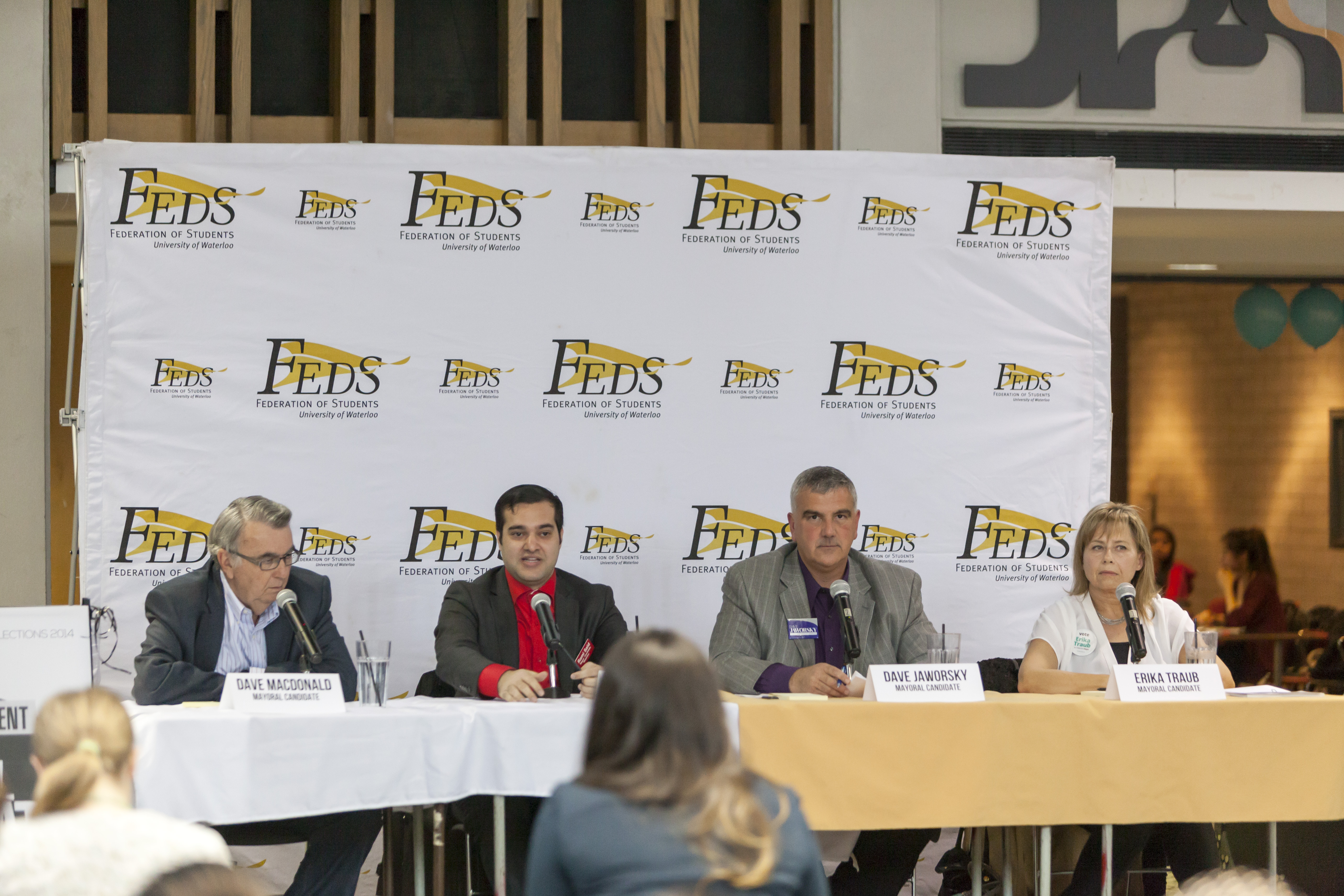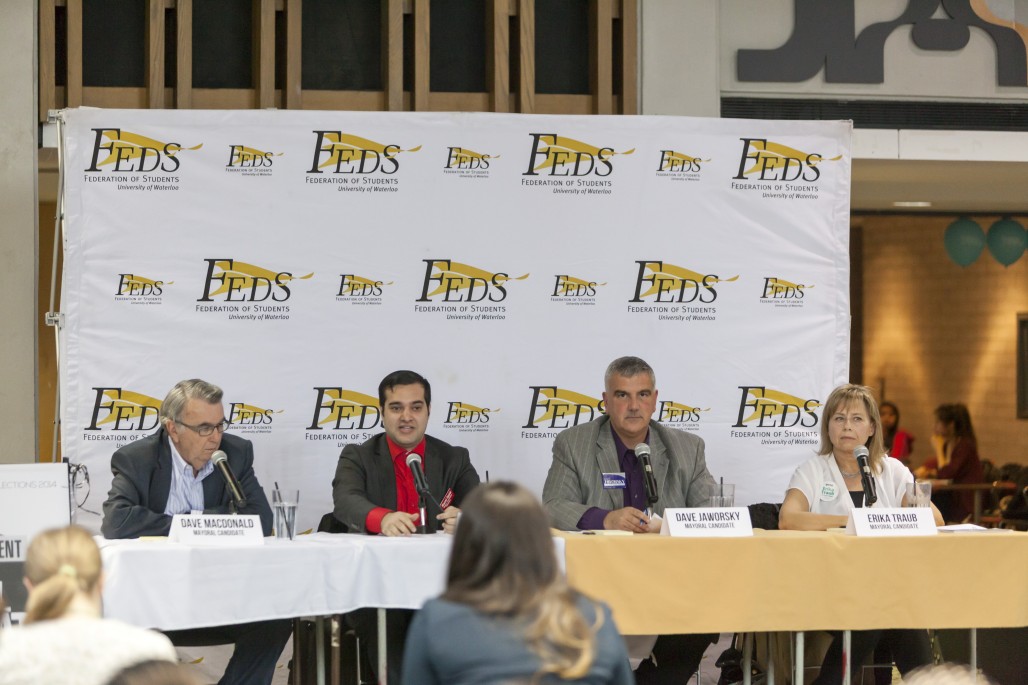Mayoral Debate Heats Up

Four candidates faced off Monday

On Monday, the second of two Waterloo mayoral debates focused on student issues took place at the University of Waterloo. The debate, organized and moderated by the University of Waterloo Federation of Students, featured all four of Waterloo’s candidates for mayor.
The previous debate at Wilfrid Laurier University, structured more as a forum, saw candidates largely agree with each other and hesitate to come out and challenge their political rivals.
The UW debate, which had a different structure that included open time for candidates’ comments and rebuttals, was quite different.
The first topic, concerning expanding bike lanes in the city, saw a split between the four candidates. On one side, Dave MacDonald and Rami Said opposed adding segregated bike lanes, mostly due to financial and safety concerns.
“Segregated bike lanes are one potential answer, but they are very expensive and we need to get the best deal for the taxpayer,” said MacDonald. “It’s a two-pronged approach: we need to educate cyclists and find ways to make roads easier for them.”
On the other side, Erika Traub asserted that segregated bike lanes were necessary to modernize Waterloo.
“I strongly believe that we need to take a global look at the city, and have segregated bike lanes that connect and safely go around the entire city without having to compete with cars and pedestrians,” she said.
Candidate Dave Jaworsky also agreed that a bike lane expansion was needed, although was less supportive than Traub on segregated bike lanes.
After the candidates gave their statements about bike lanes, a five-minute period of open debate was initiated.
Unlike the WLU debate, candidates were much more willing to challenge each other’s positions on the given subject.
“How are we going to pay for it? We don’t have the money to cover our current infrastructure deficit we already have. We don’t have the money, that’s the problem,” Said asked Traub.
Traub largely ignored Said’s question of how the city would pay for segregated bike lanes, and continued to express her support for the project as a method to bring the Waterloo into the future.
“My vision of the future is for Waterloo to be a premiere, trendsetting city where tourists come because they can take a tour of the city on the segregated bike lanes,” she said.
Two candidates also exchanged barbs during a later debate period, as they expressed their values concerning working with both provincial and federal government. Jaworsky brought up that he has worked with the provincial government in the past both as vice-chair of Communitech and as part of Blackberry.
“Every mayor in the province of Ontario will be lobbying on their own behalf, and we need to have someone in our city who can lobby,” he continued.
MacDonald, who has run for provincial office in the past and has worked at CTV news, asserted that he also has the relationships necessary to make him a good fit for mayor.
“I’m friends with most of the MPPs in the region, so lobbying is one thing, friendship is another,” said MacDonald.
Overall, the UW debate stands out as the first time students were able to witness candidates oppose each other’s positions in an assertive way. With the election on Oct. 27, it appears debate is heating up and candidates are eager to prove why their vision and expertise are right for the City of Waterloo.

